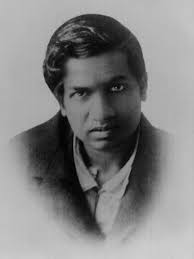Srinivasa Ramanujan (1887–1920) was a self-taught Indian mathematician whose groundbreaking contributions to mathematical analysis, number theory, infinite series, and continued fractions have influenced mathematics profoundly. Despite having little formal training, he produced results that continue to inspire research today.
- Ramanujan Prime
A function that gives an approximate count of prime numbers less than a given value.
It provides an upper bound for the largest prime gap.
- Ramanujan Theta Function
A special function in modular forms and mock theta functions, which plays a significant role in combinatorics and mathematical physics.
- Partition Formulae
He discovered highly efficient formulas to count the ways a number can be expressed as a sum of positive integers.
- Mock Theta Functions
A set of functions he formulated in his last letters before his death, which were later found to be deeply connected to modern number theory.
- Ramanujan’s Infinite Series for Pi (π)
He derived an extremely rapid converging series for π, which has been used in modern computing for high-precision calculations:
1π=229801∑k=0∞(4k)!(1103+26390k)(k!)43964k\frac{1}{\pi} = \frac{2\sqrt{2}}{9801} \sum_{k=0}^{\infty} \frac{(4k)! (1103 + 26390k)}{(k!)^4 396^{4k}}
This formula was used in early computer algorithms for calculating π.
- Highly Composite Numbers
He studied numbers with a large number of divisors and laid the foundation for later work in divisor function theory.
- Ramanujan–Petersson Conjecture
A deep result in modular forms, later proven as part of the Langlands program.
A collection of unpublished theorems discovered posthumously, which has led to numerous advances in mathematics.
Ramanujan’s talent was recognized by G.H. Hardy, a renowned British mathematician, who invited him to Trinity College, Cambridge, in 1914.
Together, they worked on highly composite numbers, the circle method, and modular forms.
Hardy later rated Ramanujan’s mathematical brilliance as “a 100 out of 100”, compared to other greats like David Hilbert.
A British biopic starring Dev Patel as Ramanujan and Jeremy Irons as Hardy.
Based on the 1991 book The Man Who Knew Infinity by Robert Kanigel.
The film portrays his struggles, genius, and eventual recognition in the mathematical world.
Elected as a Fellow of the Royal Society (FRS) in 1918.
The Ramanujan Journal, dedicated to research in his areas of interest.
National Mathematics Day (December 22) is celebrated in India in his honor.
His ideas continue to impact fields such as cryptography, computer science, and physics.







